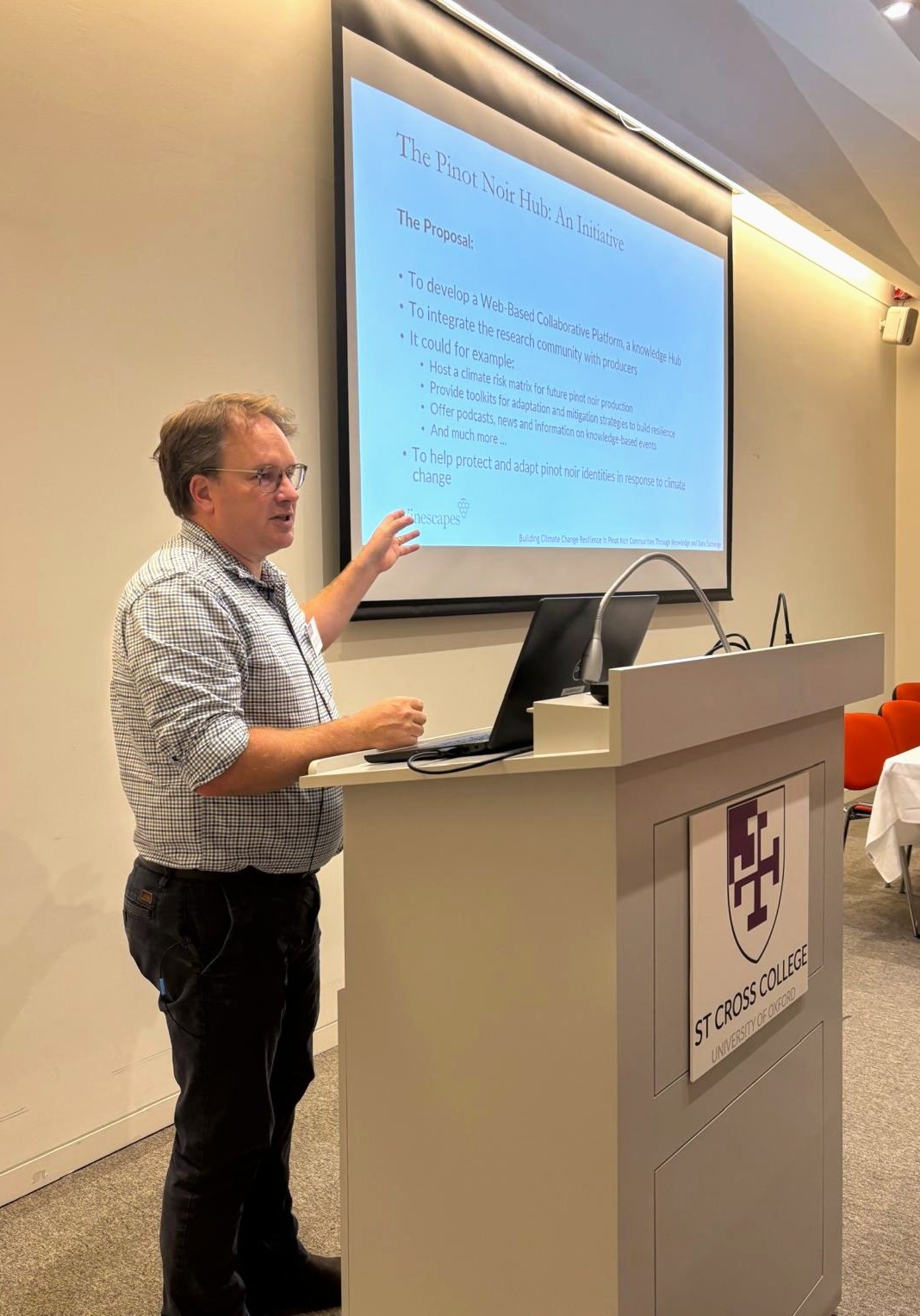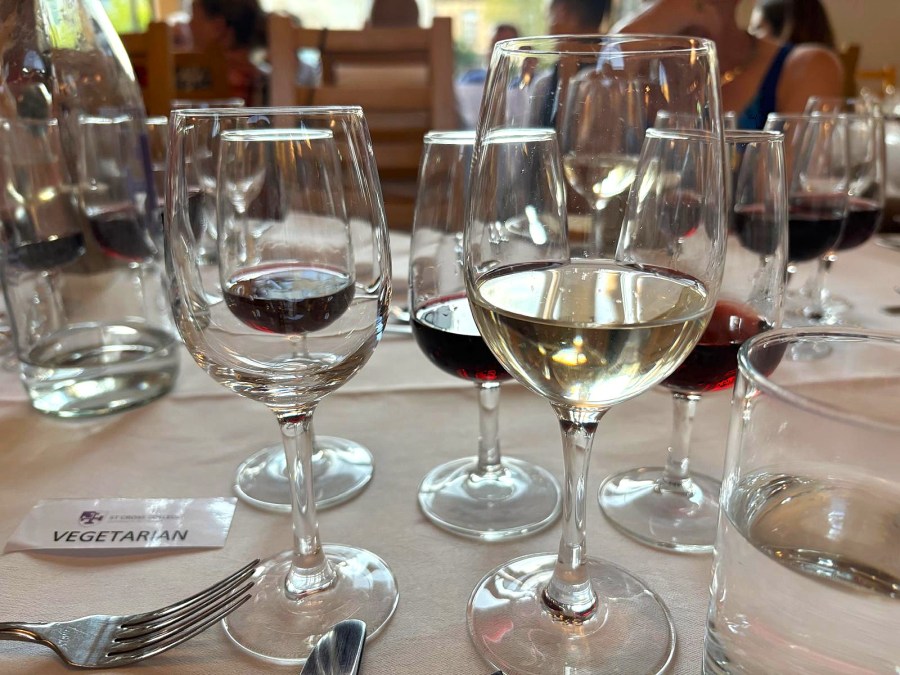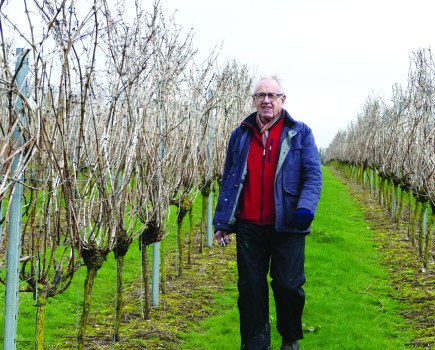From 9-12 July, vignerons, academics, scientists, cultural commentators, and wine industry executives arrived in Oxford from all corners of the world to explore the past, present and future of pinot noir grape-growing, winemaking and market positioning.
Based at St Cross College, the symposium featured a visit to Hundred Hills Vineyard, lectures, tastings, workshops, networking and detailed discussions about the appeal and future challenges of pinot noir wine.
The steering committee chaired by Professor Jacqueline Dutton from The University of Melbourne, brought a number of leading names in pinot noir production and commentary to the symposium, including Jasper Morris MW, wine writer Elaine Chukan Brown, Nigel Greening from Felton Road, Boris Champy of Domaine Boris Champy, Gavin Carver from Freedom of the Press and Pauline Vicard of Areni Global.
Vinescapes’ CEO Dr Alistair Nesbitt led a panel discussion about the ‘Impact of Climate Change on Pinot Noir Identity’ alongside Honorary Professor Steve Dorling and Professor of Chemistry and Enology, Regis Gougeon; and later joined colleague, Vinescapes’ Marketing Manager and PhD candidate Kerrie Lyons, to present digital opportunities for pinot noir producers to collaborate and cooperate across borders.
“The symposium brought together some incredible minds in economics, anthropology, sociology, consumer theory, history, geography and numerous scientific streams to analyse what sets pinot noir apart in modern day markets, and the reasons so many people who make and consume wine hold a special place for pinot noir,” said Alistair.
“The reality of climate change and how it will transform pinot noir wine production as degree days increase was a key message of the panel and presentation.
“It also outlined the opportunities and the possibilities regenerative viticulture, collaboration and technology can provide to wine producers as they navigate changes in growing conditions.”
Some of the key ideas which emerged from the conference included:
- the need for more interconnectedness and a dynamic dialogue between producers, industry, scholars and consumers
- wine production is in a state of constant change, despite the claims of continuity in tradition from ancient times
- the industry will need to continually adapt, rather than maintain rigid regulations about what varieties to grow and how to grow them
- the transformation of pinot noir in a changing climate extends to the plant, people and place
- the importance for producers and distributors to segment and dissect a diverse market: not every pinot noir drinker is the same
- thinking about pinot noir in the plural not singular, will shape the future of pinot noir in many directions
Themes of transformation and possibilities presented many confronting questions for attendees, such as what is pinot noir without Burgundy; what would Burgundy be without pinot noir; and how does the identity of pinot noir change with the adoption of hybrid pinot noir varieties, or with new, emerging regions planting pinot noir such as Essex, Scandinavia or Japan.
Alistair said the role of the scientific community and industry collaboration will become critical for growers as they seek out the best way to manage the impact of climate change.
Arising from this symposium is The Pinot Noir Project. The project includes working groups, additional research programs and opportunities for engagement through upcoming conferences and industry events.
Pictured top: A German blanc de noir and three pinot noir wines from the US, New Zealand and France enjoyed on Day One of the Pinot Noir Symposium
Vinescapes is proud to have been a part of this inaugural symposium and will be an ongoing contributor to The Pinot Noir Project.

Dr Alistair Nesbitt presents to the Pinot Noir Symposium in Oxford, July 2025
For more like this, sign up for the FREE Vineyard newsletter here and receive all the latest viticulture news, reviews and insight




